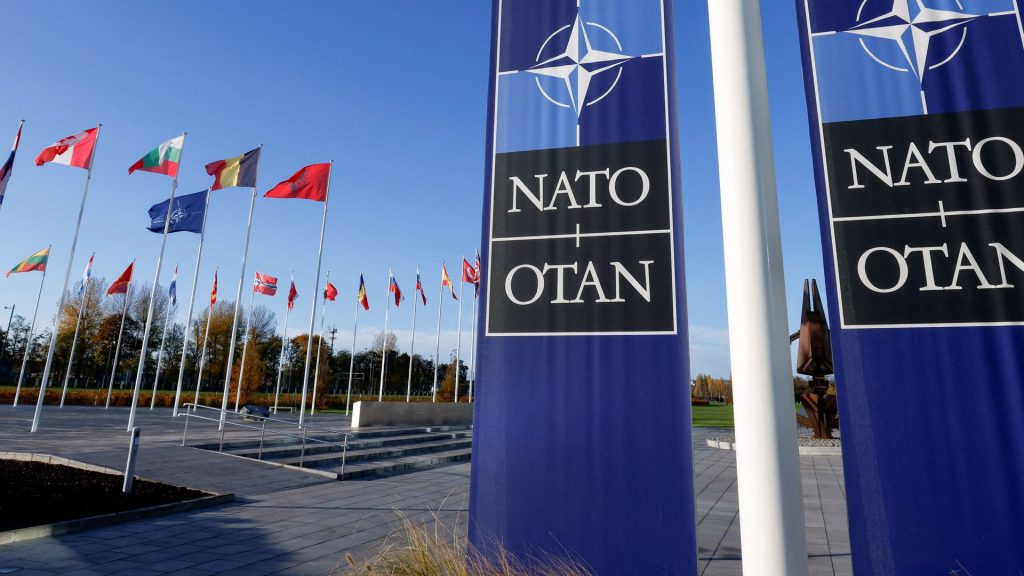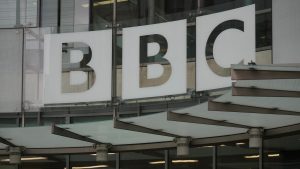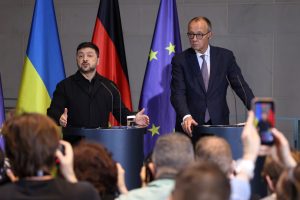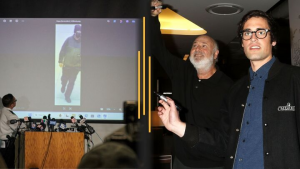President Donald Trump, Ukraine and America’s Role in NATO
Ella Greene March 19, 2025 0
- President Donald Trump believes the U.S. carries too much of NATO’s burden, raising concerns among allies, especially after his temporary pause on aid to Ukraine. Former ambassador to Bulgaria, Eric Rubin, provides historical context on NATO, U.S. foreign policy, and Russia’s aggression.
- Rubin explains Putin’s 2022 invasion of Ukraine was driven by the threat of a democratic Ukraine aligning with the West, and he critiques U.S. military aid as substantial but insufficient for Ukraine’s victory.
- He emphasizes NATO’s ongoing importance to U.S. security, warning against isolationism and rejecting claims that America bears all the costs. Rubin argues alliances remain crucial in a volatile global landscape.
Full Story
President Donald Trump makes no apologies for thinking the United States bears too much of the burden regarding America’s role in the North Atlantic Treaty Organization — more commonly known as NATO. As the president temporarily cut off aid to Ukraine, and with many analysts and experts saying the U.S. is entering a new phase of diplomacy, some NATO allies are questioning the U.S. commitment to the cause and to them.
To help add some context and perspective, SAN’s Ryan Robertson spoke with Eric Rubin, the former U.S. ambassador to Bulgaria. He was a U.S. diplomat for almost four decades and now serves as a fellow with the Center for European Policy Analysis, where he focuses on Central and Eastern Europe.
The following is an excerpt from their conversation, edited for time and publication.
Russia’s invasion of Ukraine
Ryan Robertson: In your opinion, Ambassador, why did Russian President Vladimir Putin wait until 2022 to launch the full-scale invasion?
Eric Rubin: Well, I think his biggest priority all along has been to ensure or achieve a compliant Ukraine that would not threaten his rule. And Ukraine is the second largest part of the former Soviet Union, it is the second largest Slavic country. Ukraine existing as a free democratic country with free elections, free media, freedom of religion, and freedom of everything else is a very serious threat to Putin’s dictatorial rule in Russia, where he’s pretty much eliminated all opposition, including through murder. He has eliminated all free media and no longer has any kind of elections you could call elections.
So, I think he was trying all along to see if he could manipulate Ukraine into, first of all, not choosing to join the European Union and essentially not aligning with the West, which includes the United States. By 2022, it was clear that most Ukrainians wanted to be part of Europe. They wanted to be part of the West. Ideally, they wanted to be part of the EU and NATO. At some point, which I think was a huge mistake on Putin’s part, he decided he couldn’t tolerate that and was just going to try to take over his next door neighbor.
U.S. support for Ukraine
Ryan Robertson: In the three years since the full-scale war began, American support has kind of ebbed and flowed. Many believe it was never the full-fledged support that might have been promised under the Budapest Memorandum. But President Biden did send billions of dollars worth of weapons and aid. President Trump, during his term, paused and then restored aid and intelligence. How would you gauge the current administration’s handling of the war and our relationships with both Ukraine and Russia?
Eric Rubin: Well, let me just say, since you mentioned the Budapest Memorandum, for those in the audience who don’t know that history, in 1994, Ukraine gave up the world’s second-largest nuclear arsenal and handed it over to Russia at our insistence. In exchange, there was an agreement signed by Russia, the United States and the UK, guaranteeing Ukraine’s sovereignty, territorial integrity and borders. However, it was not a binding treaty, and unfortunately, that is a lesson for the future — that a piece of paper is not worth much more than the paper it’s written on.
I think it’s fair to say that the Biden administration and the United States were very generous in helping Ukraine fight off this Russian assault. Over the past three years, we have given Ukraine more military aid than we’ve given any other country since the Vietnam War. On the other hand, critics argue that we never quite gave Ukraine enough to defeat Russia — only enough to survive. I think that’s true.
President Biden has often stated, and President Trump echoes today, that the American president must ensure we don’t have World War III or nuclear war. The Russians love to use that as a threat, but I don’t think it’s serious. Still, American presidents are careful.
In retrospect, I would have liked President Biden to do more for Ukraine, but his administration did a lot. As for the Trump administration, we are waiting to see. President Trump says he wants to end this war, which is a laudable objective. We all want to see this war end, but it can’t end with Russia winning. If that happens, the lesson for the world is that if you don’t like your borders, you just invade your neighbor and change them, which threatens the entire international system. We can’t allow that.
America’s role in NATO
Ryan Robertson: Let’s zoom out a little bit. As a former ambassador and NATO supporter, how do you see America’s role within NATO currently? Do you feel that concerns about America pulling back from NATO are valid?
Eric Rubin: Well, I’m very worried, as just about everybody I know is, because NATO remains fundamental to our national security and prosperity. It troubles me when I hear people dismiss NATO as something from the past or as a one-sided agreement where we bear all the costs, which is simply not true. NATO has been there for us. It was there for us after 9/11 when we were attacked. NATO is the linchpin of international security for the United States.
Obviously, NATO is based on Europe and North America, and it doesn’t cover the rest of the world. But we are allied with almost all of our most important democratic partners in NATO. There are a few other great democratic allies around the world, such as Japan, South Korea, Australia, and New Zealand, who are not in NATO but have cooperation agreements with it. That was very important, for example, during the war in Afghanistan.
Most importantly, NATO remains relevant. It would be a big mistake to say we don’t need friends, we don’t need allies, and we’re just going to go it alone. We’ve had that experience in our history — it doesn’t go well. The last time we seriously embraced isolationism, it led to World War II. I do think we bear some blame for that war because we pulled away from the world and rejected international engagement. In the end, we paid a very high price, as did the entire world.
So, the cost of NATO is small, and it’s not just about money. Our allies could contribute more, and they are starting to. I don’t object to pushing them to do more. Some contribute more than others. But the idea that we’re paying all the costs is not correct. It’s also dangerous to think we’d be better off dealing with Putin and [China’s Xi Jinping] and just settling things with dictators. That approach won’t end well.
The global impact of NATO
Ryan Robertson: You’re right. We were just at the AFA Warfare Symposium in Aurora, Colorado, and one of the topics discussed was how NATO’s space infrastructure supports not just Europe but also the Indo-Pacific region. NATO’s reach extends beyond Europe.
Eric Rubin: Absolutely. NATO’s global partnerships matter. It’s not just about Europe. It’s about security in many parts of the world.
Ryan Robertson: Ambassador, I want to thank you for your time today. We really appreciate your insights. Hopefully, we can catch up down the road and share some more positive news.
Eric Rubin: I hope so. It’s been a real pleasure. Thank you.
Related Stories
Ella Rae Greene, Editor In Chief
Ella Greene
Ella and the staff at Clear Media Project (CMP) curate these articles.
Unless otherwise noted CMP does not write these articles.
The views, thoughts, and opinions expressed in the articles published on this blog belong solely to the original authors and do not necessarily reflect the views of the blog owner. The blog owner does not claim ownership of the content shared by contributors and is not responsible for any inaccuracies, errors, or omissions.
All rights and credits goes to its rightful owners. No Copyright Infringement is intended. If you believe any content infringes on your rights, please contact us for review and potential removal.





